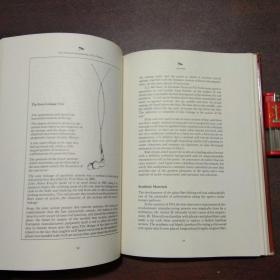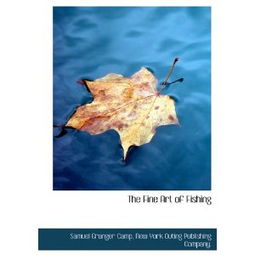When it comes to fishing, there's something inherently thrilling about being out on the water, feeling the gentle sway of the boat as you cast your line into the vast expanse of the lake or river. Fishing from a boat opens up a world of possibilities, allowing anglers to access areas that are often unreachable from the shore. However, mastering the art of fishing from a boat requires a unique set of skills and techniques. Here's a comprehensive guide to help you become an expert at boat fishing.
Pre-Boat Fishing Preparation
Before you even set foot on the boat, there are several steps you should take to ensure a successful fishing trip.
Equipment Check
Ensure that all your fishing gear is in good working order. This includes rods, reels, lines, hooks, lures, and any other tackle you plan to use. A well-maintained tackle box is your best friend on the water.
Safety First
Always prioritize safety. Check the weather forecast, wear a life jacket, and ensure that you have a first aid kit and emergency supplies on board.
Knowledge of the Area
Research the fishing spots you plan to visit. Understand the local fish species, their habits, and the best times to fish in that area.
Setting Up Your Boat
Once you're on the water, it's time to set up your boat for fishing.
Positioning the Boat
Choose a spot with a good depth of water and clear of obstacles. If you're fishing in a river, look for a quiet backwater or a deep pool. In a lake, find a point where the fish are known to congregate.
Stabilizing the Boat
If you're in a small boat, use the motor to hold a steady position. If you're in a larger boat, use the anchor to secure your spot. It's crucial to have the boat stable to cast effectively.
Rod Placement
Set up your rods with a rod holder if possible. This keeps your hands free and allows you to concentrate on your fishing technique.
Casting Techniques
Casting is a fundamental skill in boat fishing. Here are some tips to improve your casting technique:
Choose the Right Rod and Reel
Select a rod and reel that are appropriate for the type of fishing you're doing. A longer rod gives you more leverage for casting.
Learn the Basics
Practice casting in open water before you try to cast from a moving boat. Learn the basic overhead cast, sidearm cast, and roll cast.
Adjust for Wind and Current
Wind and current can significantly affect your cast. Adjust your technique to account for these factors. For example, in windy conditions, you may need to cast further from the boat to get your lure out.
Fishing Techniques
Once you have your boat set up and are ready to cast, here are some fishing techniques to consider:
Trolling
Trolling involves moving your boat slowly through the water while dragging a lure or bait behind it. This is effective for targeting species like walleye, bass, and trout.
Still Fishing
If you're fishing in a calm area, you can anchor your boat and fish still. This allows you to focus on the bite and can be more effective for species like catfish and carp.
Jigging
Jigging involves quickly lifting and dropping your lure in a rhythmic motion. This technique is great for triggering strikes from bottom-dwelling fish like flounder and walleye.
Reading the Water
Being able to read the water is a crucial skill for successful boat fishing.
Look for Structure
Structure like rocks, logs, and weed beds can be prime fishing spots. These areas often hold fish looking for cover or food.
Observe the Water
Pay attention to the surface of the water. Fish may be visible breaking the surface, or you might see bubbles or disturbances that indicate their presence.
Use a Fish Finder
A fish finder can be an invaluable tool for locating fish. It can help you understand the underwater terrain and the distribution of fish in the water column.
Bait and Lures
The choice of bait or lure can make a big difference in your success rate.
Bait
Natural bait like worms, minnows, or crickets can be very effective, especially for species that are known to feed on these types of food.

Lures
Artificial lures like spinners, crankbaits, and jigs can be used to mimic the movement of real fish and can be very effective, especially for species that are fussy feeders.
Post-Fishing Clean-Up
After a successful day of fishing, it's important to clean up your gear and the boat.
Clean Your Tackle
Rinse your tackle with fresh water to remove saltwater or lake silt. Dry it thoroughly to prevent rust or mold.
Clean the Boat
Scrub the deck and seats with a non-abrasive cleaner. Make sure to clean the motor and bilge area to prevent any buildup of algae or grime.
Conclusion
Fishing from a boat can be an incredibly rewarding experience, but it requires practice, patience, and a keen understanding of the water and the fish you're targeting. By following these techniques and continuously refining your skills, you'll be well on your way to becoming a master boat fisherman. Happy fishing!












